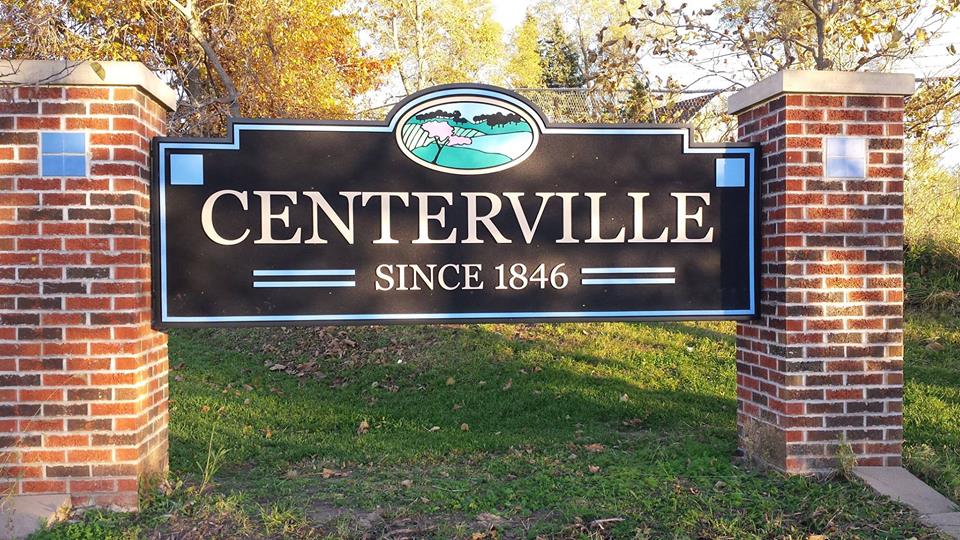Randy Evans is executive director of the Iowa Freedom of Information Council, a nonpartisan, nonprofit organization that promotes openness and transparency in Iowa’s state and local governments. He can be reached at DMRevans2810@gmail.com.
Earlier this month, I bumped into an Appanoose County woman I have known for several years. She thanked me and the nonprofit organization I manage for shining the spotlight on the actions of Centerville Community School District leaders.
This mother told me I was responsible for her spending part of a recent evening listening to the recording of a closed meeting of the Centerville school board that had just been made public by order of a judge.
The purpose for the 2023 closed session supposedly was to discuss the job performance of Ryan Hodges, the guidance counselor at Centerville High School. But Hodges submitted his resignation two days before the meeting.
The Appanoose County mother was troubled by what she heard on the recording. It bothered her that school board members and Superintendent Mark Taylor did not talk about the actions of Hodges, who has been accused of predatory behavior toward a 17-year-old female student the school was responsible for protecting.
Instead, what the mom heard were board members and superintendent expressing more concern about how the findings by an outside investigator had leaked to the public, rather than Hodges’ sexual “grooming” of the girl. She heard school officials agreeing to make sure their public statements did not imply Hodges was forced to resign. She heard discussion about board members’ concerns about how the resignation would affect Hodges’ own children in elementary school.
There was more. The mom also did not hear board members discuss the superintendent’s comment that another Centerville High School teacher may have allowed harassing talk in the classroom about the teen girl. As described in another lawsuit, that classroom chatter included accusations the girl was “a home-wrecker.”
This closed-door meeting was at the center of a lawsuit the Iowa Freedom of Information Council and I filed against the school board in 2023 over its handling of the closed meeting. Hodges had already resigned. No one believed the school board would refuse to accept his resignation after he had been on paid leave for two months while outside investigations proceeded.
I told reporters the people in the Centerville district deserved to know what the investigators learned. Were the allegations founded or not? If they were not founded, why was he still on administrative leave? And if the allegations were founded, was the school board prepared to terminate him?
The Iowa FOI Council and I were not motivated by some prurient interest in the allegations against Hodges. Instead, our interest came from the belief that people who pay the taxes to operate the Centerville schools and send their kids and grandkids there deserve to know what went on at Centerville High School involving a supposedly trusted employee who had access to every student.
“The public needs information, not more secrecy,” I told the Ottumwa Courier at the time.
District Court Judge Mark Kruse of Burlington presided over a two-day trial of our lawsuit back in June. He issued his 28-page ruling three months later, finding the school board violated the open meetings law by failing to comply with the statute’s requirements for closed sessions.
After listening to the same audio recording my Appanoose County friend heard, the judge wrote, “It is difficult to find any consistent, or meaningful, discussion evaluating the professional competency of Mr. Hodges.”
He added, “From the words used, it was obvious that Mr. Hodges would not be retained. The initial discussion in the closed meeting clearly did not reference an allegation, but a belief that an improper act had occurred.”
The judge’s conclusion was a stinging rebuke of the school leaders.
“The closed meeting was superfluous in that whether there was a closed meeting or not, the result was going to be the same,” the judge wrote. “For these reasons, the court does find that the requirements of the open meetings statute were not met, and this was shown by a preponderance of the evidence.”
Our lawsuit will be back in the news when the school district’s insurance provider issues a check, as Judge Kruse ordered, to reimburse the Iowa FOI Council and our attorneys for $113,258 in legal expenses incurred in bringing the lawsuit.
The school district has already agreed to pay the family of the girl $79,000 to settle a lawsuit they brought against the district. That brings the total cost to the district to $192,000.
That is an expensive lesson for the Centerville schools. Government boards and councils across Iowa should learn from this case. It may be costly if they use the “professional evaluation” exemption in the open meetings law as a legal charade to justify excluding the public when discussing a range of topics not involving an employee’s job performance.
Other boards, under the guise of conducting a “professional evaluation,” have used the secrecy to talk about gender questions involving school bathrooms or questions about controversial library books. Some boards have kicked out taxpayers when officials discussed entering into a six-figure “separation agreement” with a superintendent. Other boards have discussed in secret allowing an administrator to leave immediately while continuing to pay the person through the end of the school year.
The Centerville school board is not the first to retreat into secrecy to avoid having to let the public listen in. But every government board in Iowa should hear the lesson Centerville learned, loud and clear.
Appendix: September 29, 2024 District Court ruling in favor of Randy Evans and the Iowa Freedom of Information Council
Top photo of Centerville Iowa East Entrance Sign is by Downspec, licensed under the Creative Commons Attribution-Share Alike 4.0 International license.

